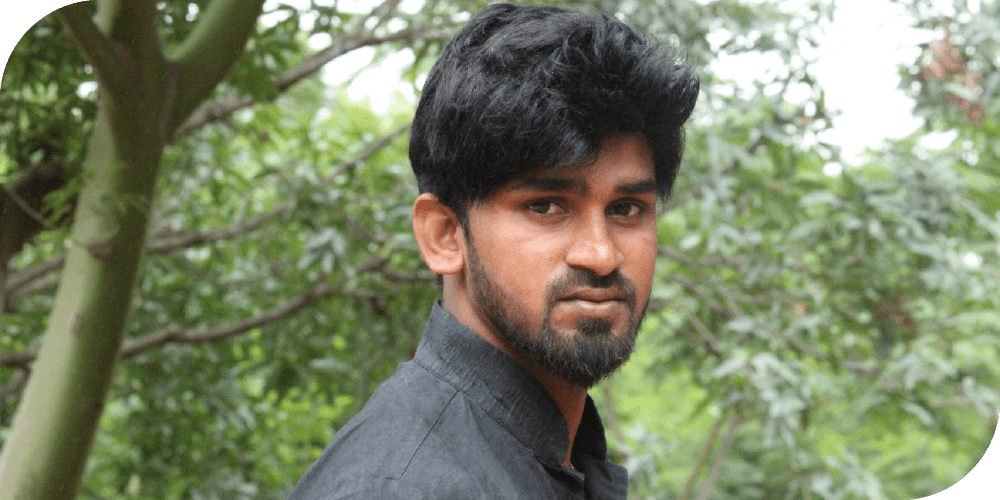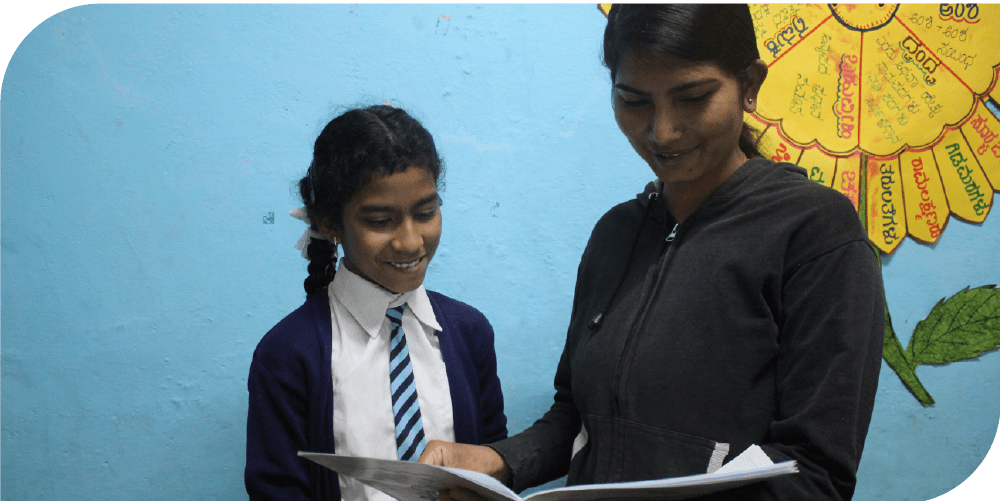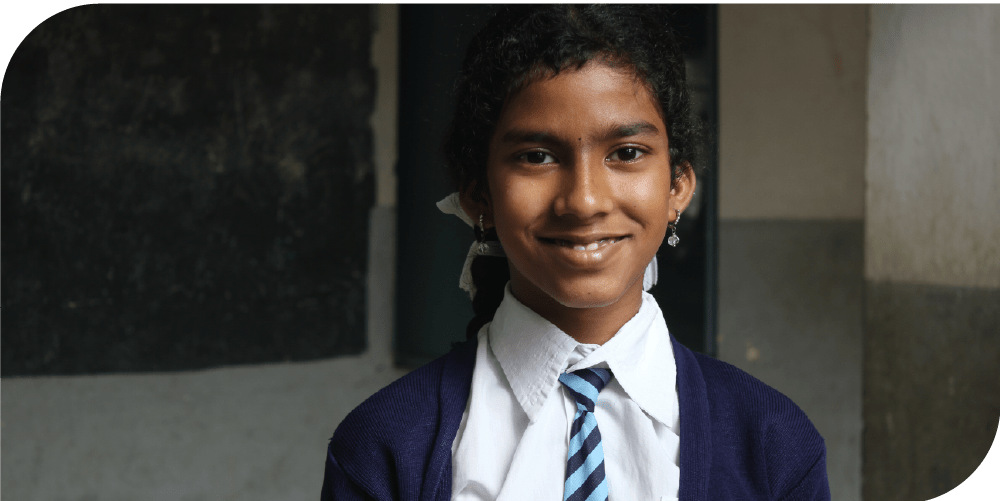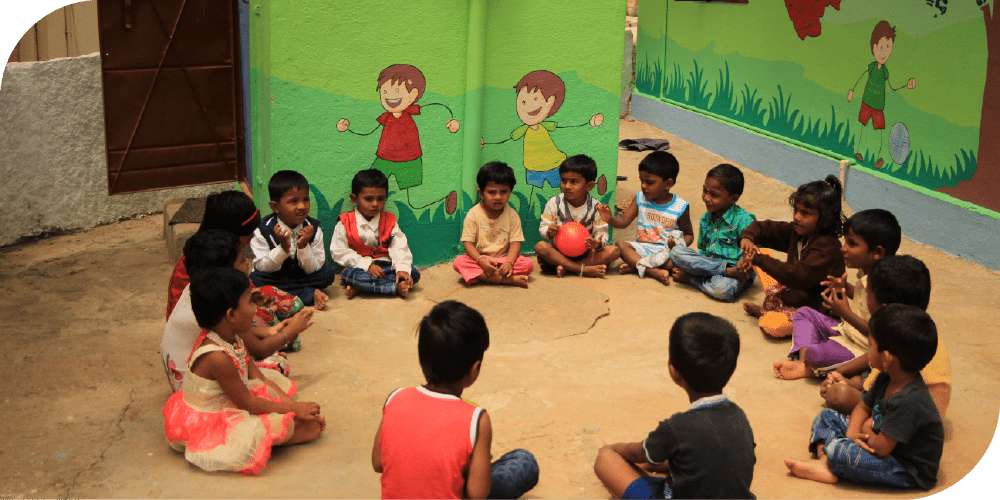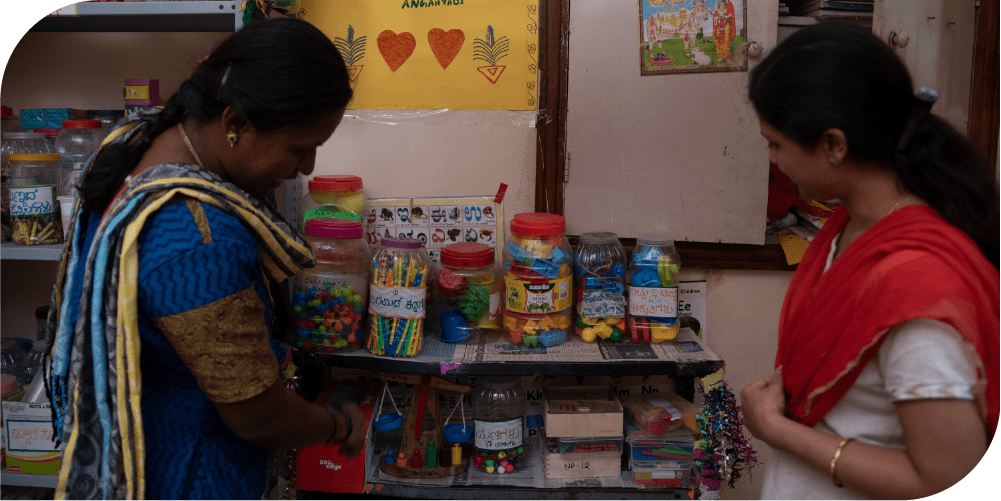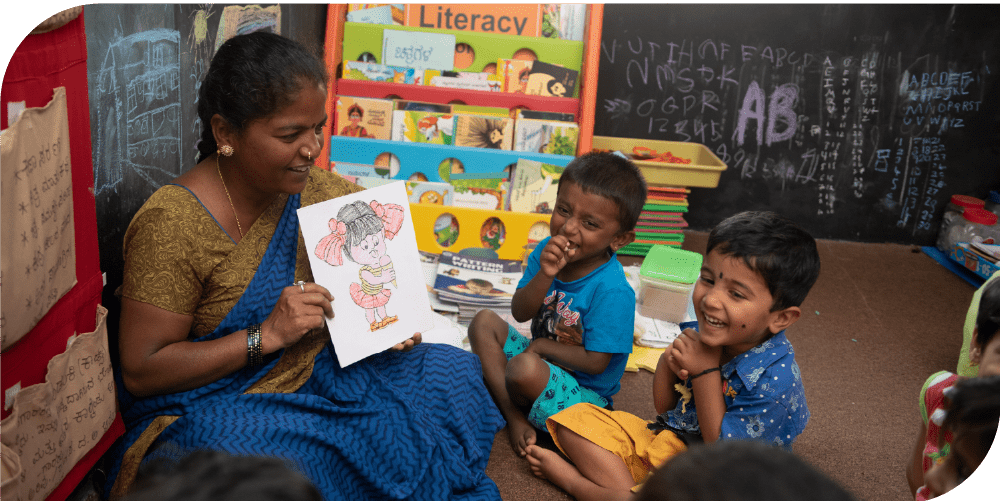The ‘New Normal’ in Early Education – Learning During the Pandemic
It’s 8 a.m. somewhere in the world. The breakfast plates have been put away, the computer screens are on and studded with little images of children, with the teacher somewhere in the mix. For the next few hours, the children listen intently to the teacher imparting the day’s lessons. This has become the reality for children across the world – a ‘new normal’ – staying away from school to prevent possible infection, and balancing that with continuous education.
The challenge with striking this balance is closer to home, right here in India. Early Childhood Care and Education (ECCE) for children between the ages of three and six is a critical need. Numerous studies have shown that 90% of a child’s brain development is driven by early experiences before they reach the age of 5, setting the pace for development right through adulthood. The absence of ECCE can have a lasting negative impact, with consequences such as early discontinuation of formal education. The challenge for uninterrupted early childhood care and education lies in accessibility, and this is a challenge across rural, semi-urban and urban areas. The new normal which we described earlier – online education and remote learning – how does one ensure this is brought to children in under-resourced communities?
This challenge extended itself to Makkala Jagriti’s methods too. Prior to the pandemic, our facilitators engaged with teachers and children regularly at the Anganwadis (Government Pre-Schools). The cheers of children while performing songs with actions and the learning-by-doing approach taught to them were both exciting and effective. The pandemic, therefore, raised the question – can we ensure the same excitement if we could provide opportunities to learn remotely? This is where our long-running approach of involving the larger community bore fruit.
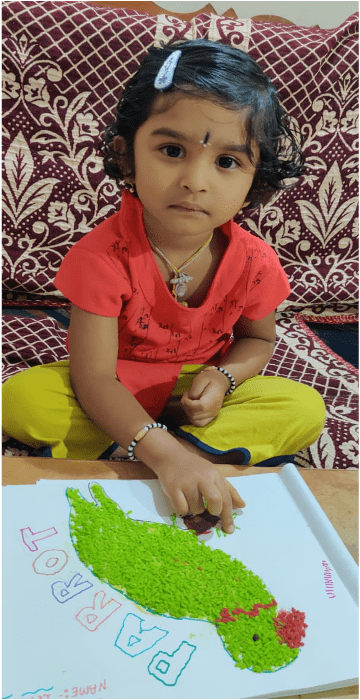
In order to successfully impart early childhood care and education to children from Anganwadis, we had to bring teachers and parents into the fold to expose them to the new methods of learning. Uninterrupted learning could particularly be hastened by strengthened bonds between children and their parents. To enable this, regular meetings and workshops were organised online with parents through our facilitators, and home visits were conducted.
That brings us to an important tool that we’ve seen in extensive use during the pandemic – technology. Technology tries to bridge the gaps caused by closures of educational institutions, especially Anganwadis. However, not everyone has access to technology. For every child that has access to a smartphone, there will be more who don’t. In order to provide equitable access to uninterrupted education across the board, we devised an approach.
The first step was to identify:
• Parents who had access to smartphones and the internet
• Parents who had basic phones
• Parents who had neither
With the parents who had smartphones and internet access, dissemination of learning material was relatively easier. We shared daily activities and videos with them regularly through WhatsApp groups and YouTube links (through Makkala Jagriti’s own YouTube channel for ECCE material). For parents with basic phones, daily tasks were conveyed through phone calls, while workbooks were also distributed especially to them and those who did not have access to any device. Community visits by facilitators were also then organised on a weekly basis at the very least.
Through this multi-modal approach, parents have been empowered to don the hats of teacher and friend as well. Before teaching their children, they were guided through the various activities and concepts to ensure the right messages are passed on to the children. These workshops empowered parents to build a solid foundation for communication with their children, facilitating homework and feedback, and – overall – strengthen their bond with their children. This makes a world of difference in every child’s self-confidence.
The facilitators too faced different challenges when it came to working during the lockdown. When Work-From-Home became a necessity, our facilitators had to quickly understand the best possible ways to disseminate information and lesson plans, especially online. The efforts of our time were widely recognised as a standard for imparting Early Childhood Care and Education (ECCE) by the Department of Women and Child Development, Government of Karnataka – which instituted the program “Maneya Angaladalli Anganwadi, Maneyalliye Oota, Maneyalliye Paata” (An Anganwadi at home, with meals at home and lessons at home). Through this program, the possibility to reach 66,000 Anganwadis with the ability to cover over 1.3 million children was achieved. Work is now underway to fulfil these possibilities consistently.
With this ‘new normal’, non-governmental organisations (NGOs) had to take a step back and rework their strategies and aims to help those in need. Makkala Jagriti is one such NGO in Bangalore which devised different methods to reach out to children and continue the learning journey for Anganwadi children, while spreading the knowledge and importance of ECCE.
For more on what we do, visit us at www.makkalajagriti.org.

